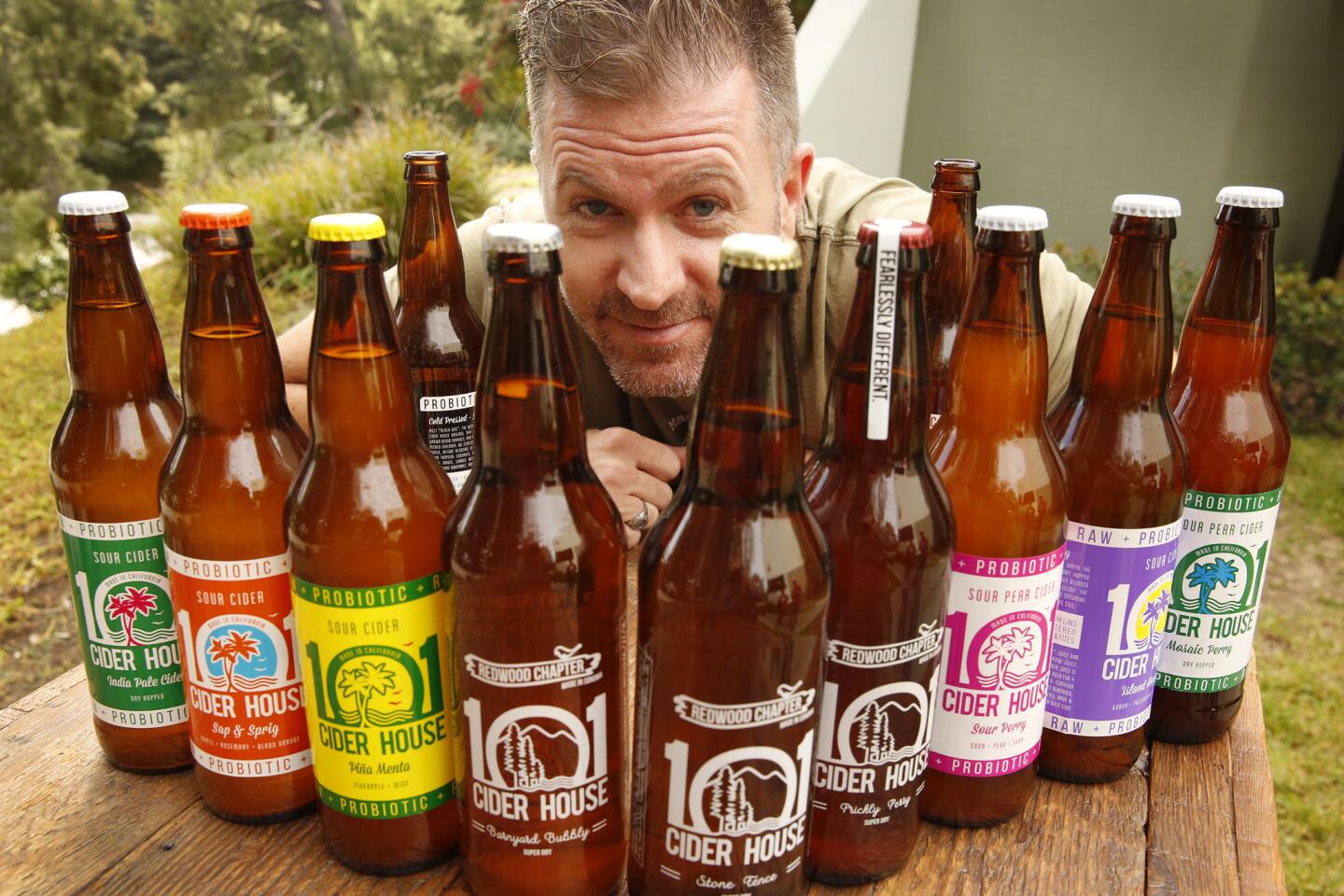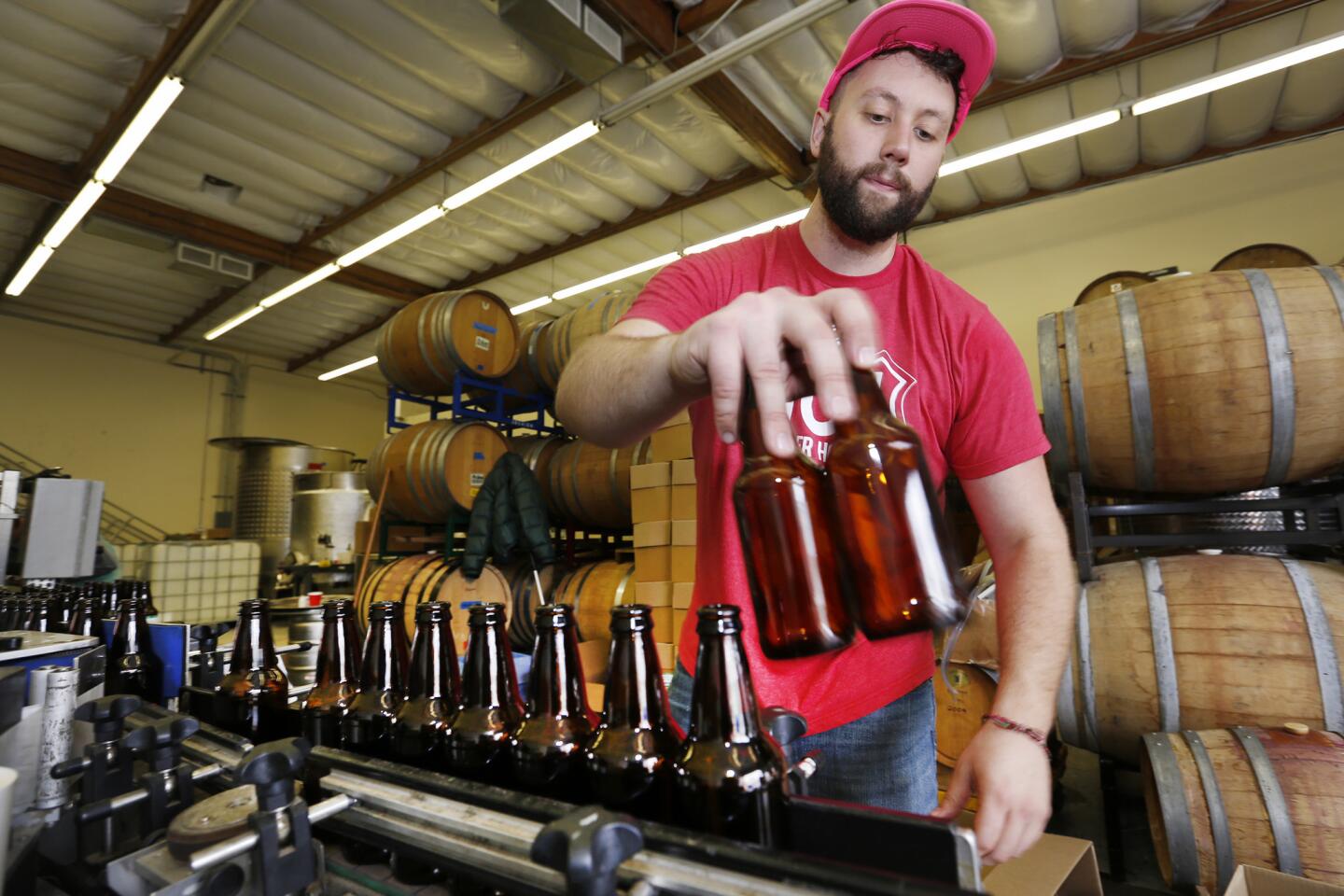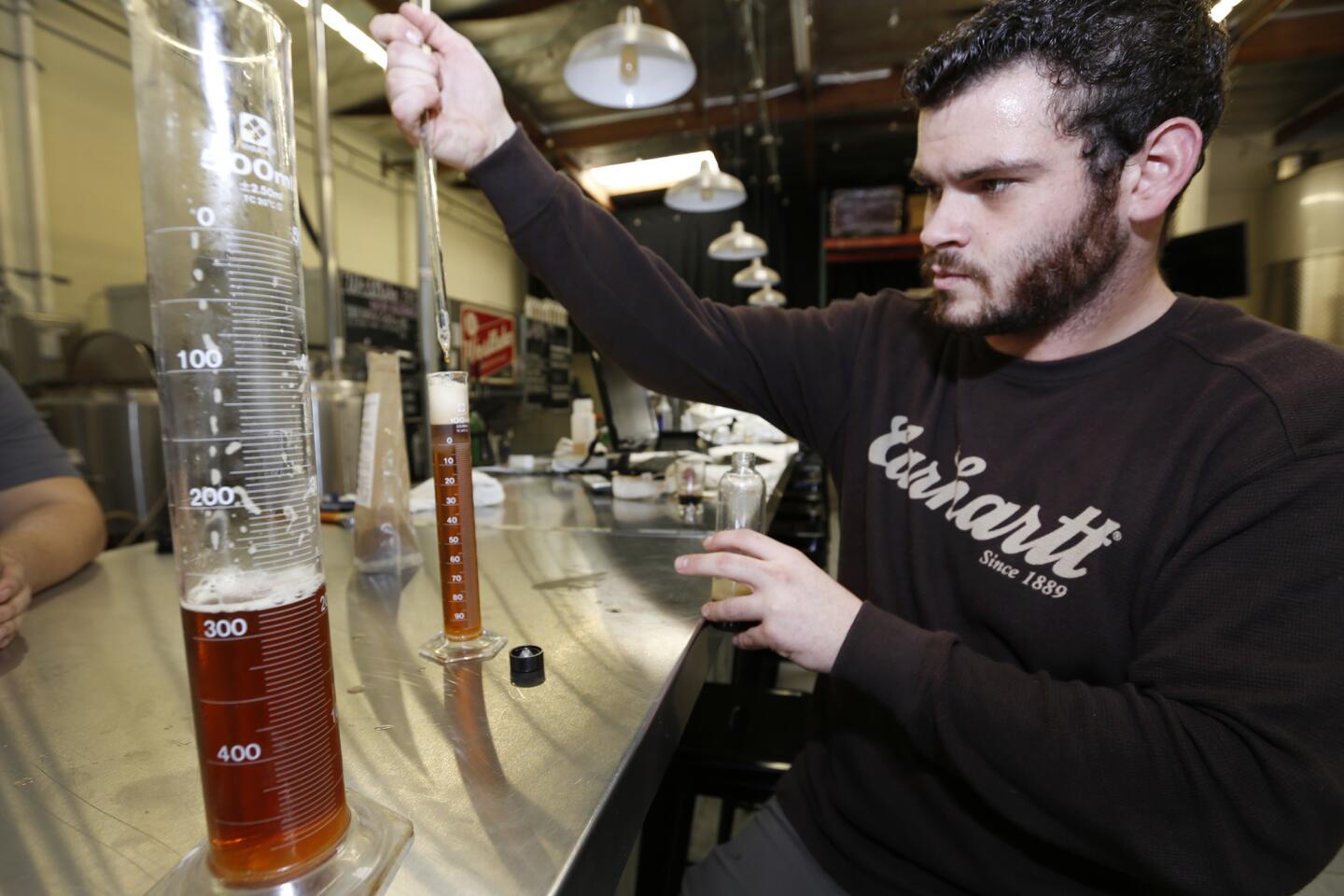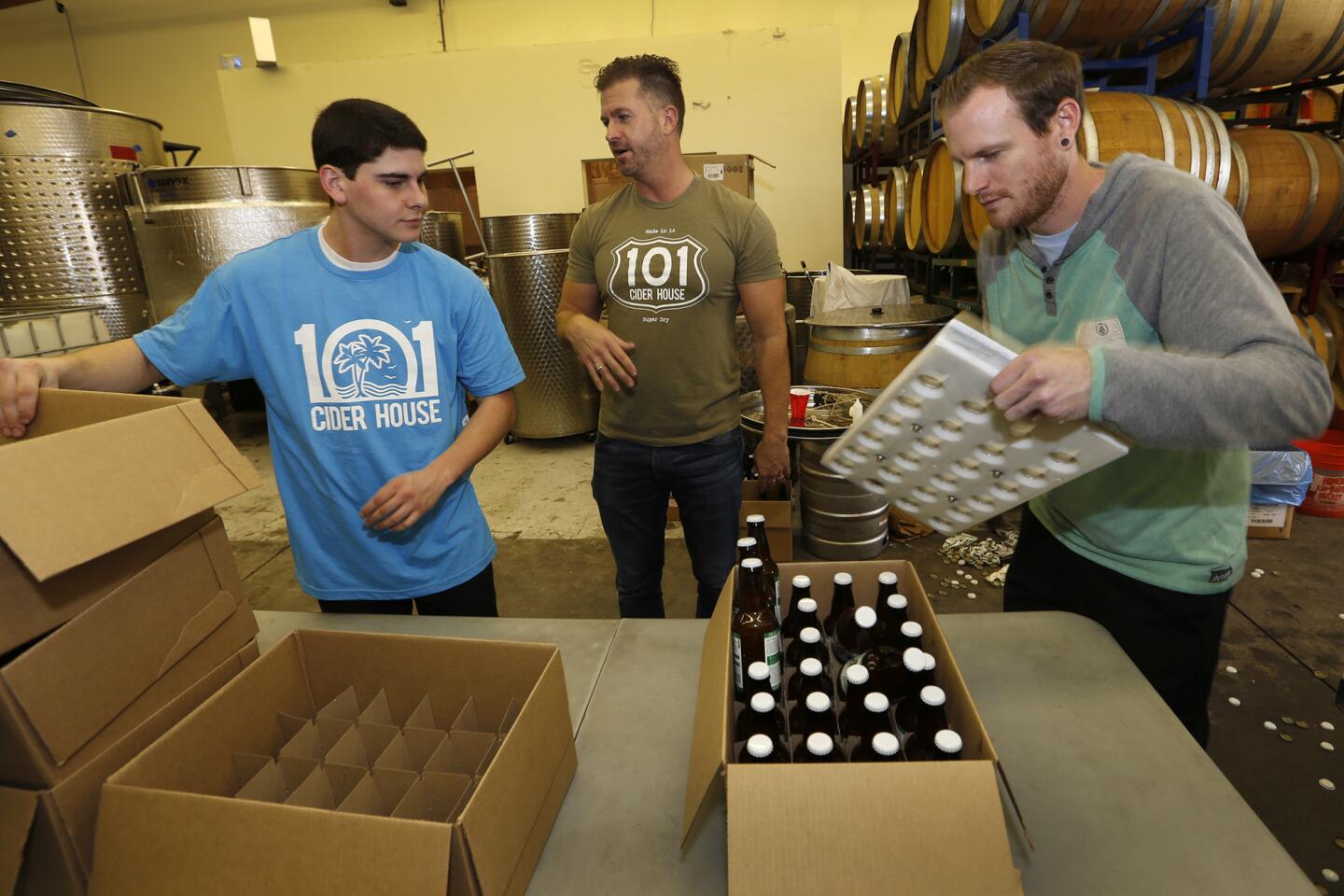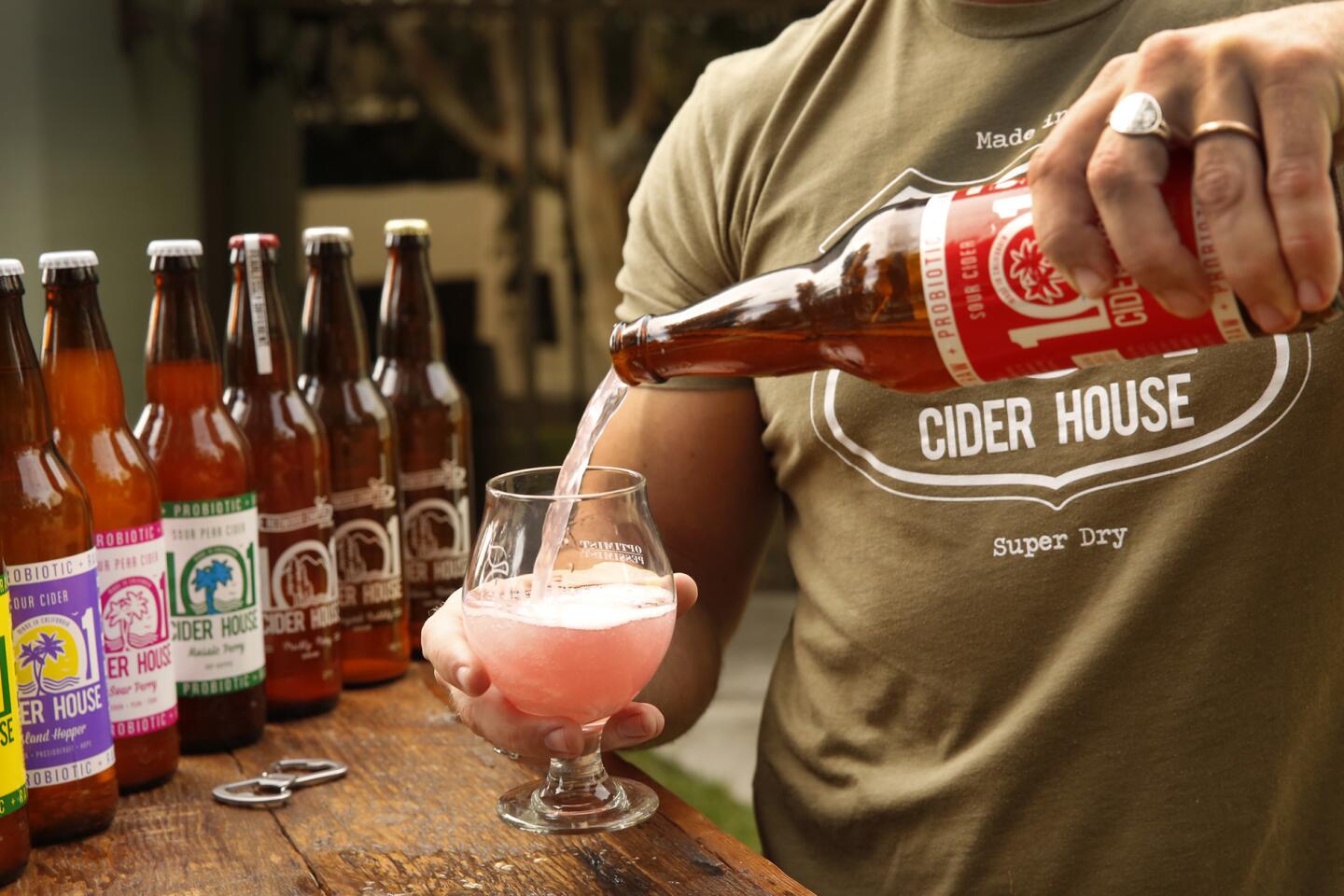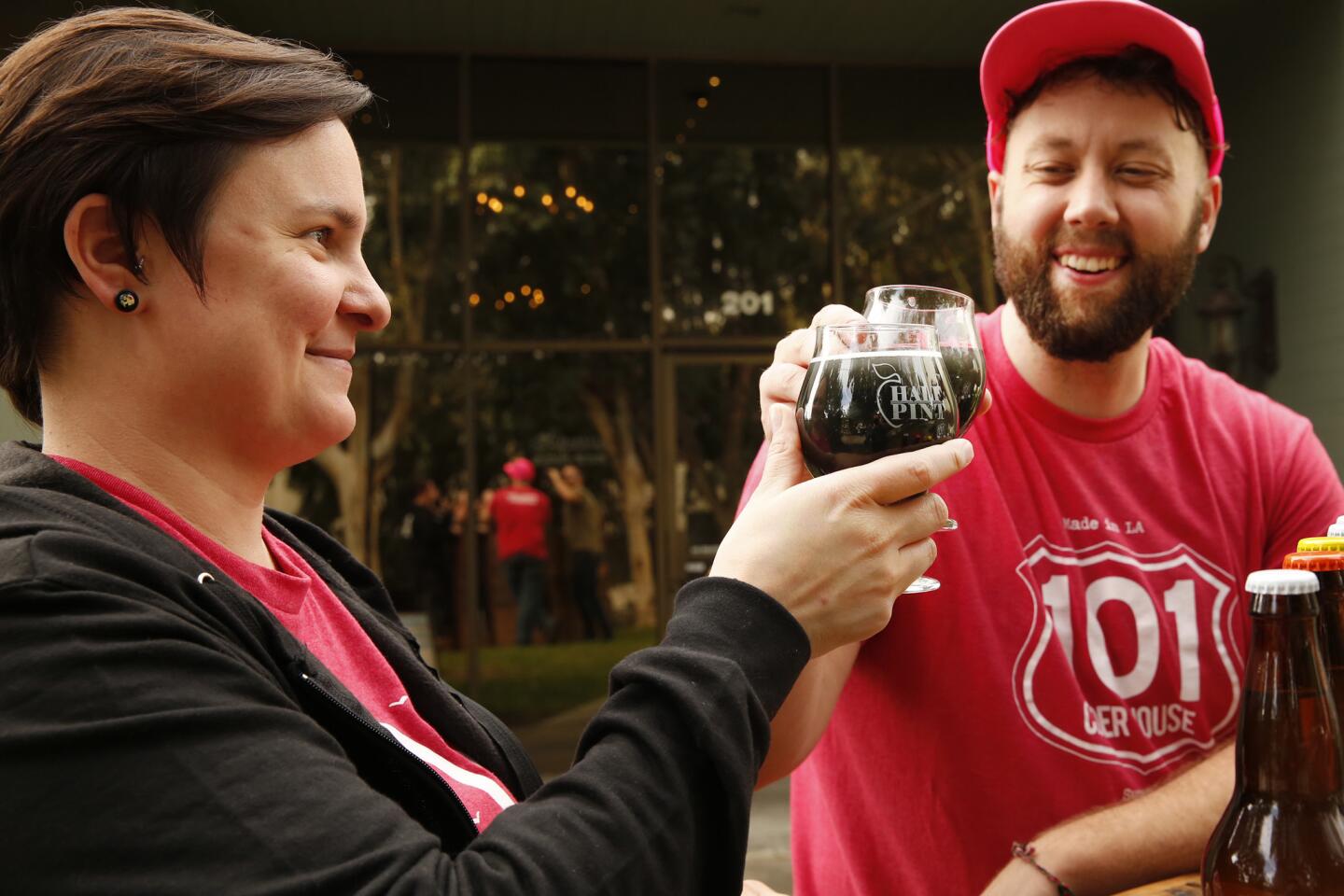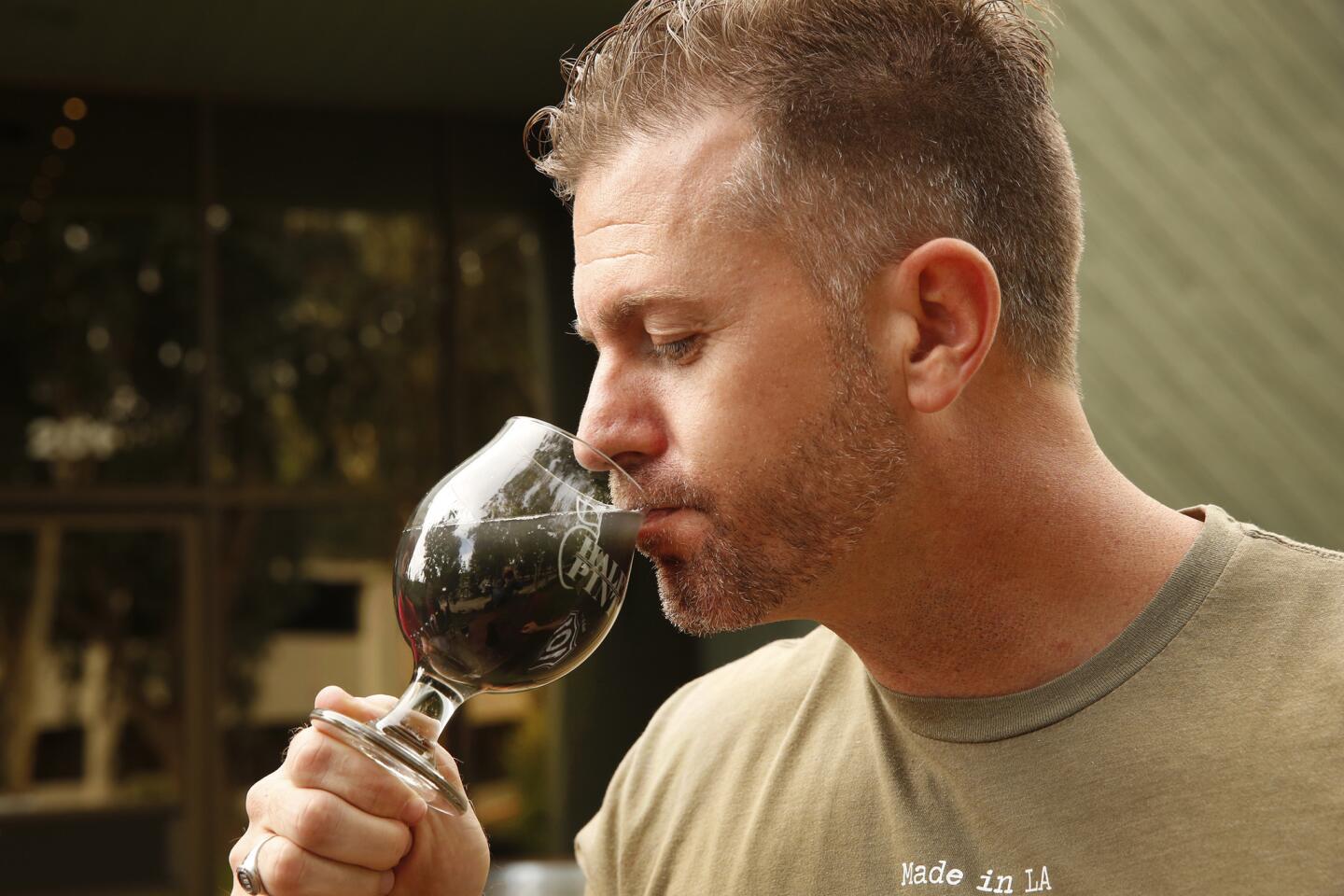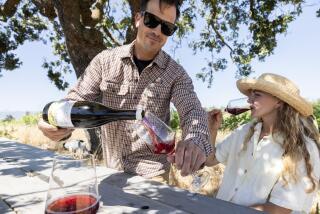Along a Los Angeles freeway, the 101 Cider House rules
- Share via
L.A. has never been a cider city. Between the craft beer industry and wine country, Los Angeles County produces some exceptional alcohol but it’s never been the place you go to find good cider — until now. Thanks to 101 Cider House, a Westlake Village cider producer making experimental sour ciders from produce from farmers along the 101 Freeway, that’s beginning to change.
Created in 2013 by Mark McTavish, a cider importer and the man behind Sonoma cider house Troy, 101 Cider House focuses on making naturally probiotic, wild-fermented sour ciders. The 37-year-old who hails from Ontario, Canada’s cider country, went through several careers — including fitness educator and bartender — before coming back to the one he grew up with: cider making. Today, McTavish and his small team of young, budding cider makers source fruit only from local farms along the 101 — a decision reflected in the business’ namer — to make an unadulterated apple wine that showcases local ingredients with a natural tartness.
Instead of a trendy Arts District location, 101 Cider House is making its mark from a metal warehouse sandwiched between an aircraft supply store and an auto tools shop in a small industrial corner of Westlake Village. Inside, past a handful of locals taking pulls at their pints of India Pale Cider, you can find McTavish, working away in a small back office surrounded by a collection of cider bottles from across the world.
In these bottles you’ll find ciders that range in their level of sourness. Many are flavors you’d never expect to find in a bottle of cider: There’s Cactus Red Cider, infused with local nopal cactus and Thai basil, and Black Dog Cider, an unusual “black” cider made with charcoal, blood orange and lavender.
In the United States, a drinks can be called cider as long as it’s made with at least 50% apples. That means much of the cider out there is only half apple-based. Also, instead of fresh pressed juice, many ciders are made from a combination of apple concentrate and added sugar that’s then fermented and force carbonated to get it sparkling in a quick three- to four-day turnaround. In the end, that often leaves drinkers with a cloyingly sweet and one-dimensional sort of boozy soda.
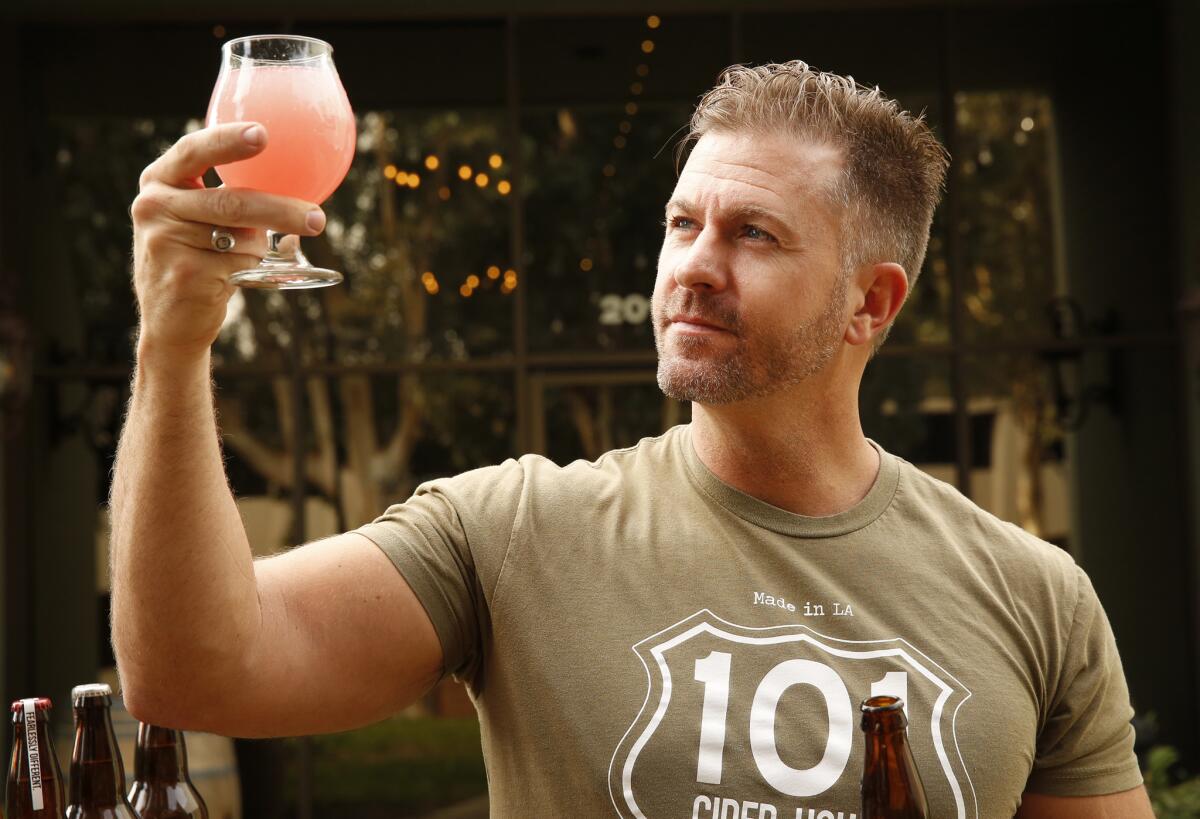
Alternatively, 101 Cider House’s relatively small annual production of 150,000 gallons is made from 100% fresh-pressed, raw apple juice. The crew chooses apples from farmers that span the 101 from Los Angeles County up to Sonoma, focusing on finding the best produce they can. McTavish refers to the apples he chooses as “spitters” — the sort of sour, jaw-tingling apples that make your mouth water. These sour apples then are pressed into raw juice and left alone to wild-ferment and become naturally sparkling over the course of a couple of months.
McTavish uses this traditional method to tackle one of cider’s most notoriously poorly made varieties: flavored ciders. The average flavored ciders are often some of the sweetest and most mass-produced, but 101 Cider House is trying to change that for the better, with bottles such as the Cactus Red, a deep pink cider that looks deceptively as though it should taste like a watermelon Jolly Rancher candy. But instead of a sip of something sweet, the cider made with nopal and Thai basil drinks like a mouthful of bright pickled watermelon and deeply aromatic Thai basil funk. It’s wonderfully drinkable yet grown-up and complex — far more so than you’d think of a pink drink.
“When I first started in cider, there were a lot of bumps along the way, for sure,” McTavish said of trying to educate people on what well-made cider actually tastes like. “I would go door-to-door to restaurants in Hollywood trying to sell the two bottles of Spanish cider I had.”
One of the ways McTavish has tried to advance that education is by finding a way to tell his customers exactly what’s in the cider they’re drinking. In the United States, wine and cider makers are forbidden from adding ingredients or nutritional facts to their labels by the federal Alcohol and Tobacco Tax and Trade Bureau. That means there may be things in your cider and wine (especially in the mass-produced stuff) that you may not want there — from anti-frothing agents to certain fining products.
To get around that, 101 Cider House caps its alcohol levels below the 7% that automatically enforces the label sanctions. “We bring our cider to 6.9 % then we get to say we’re probiotic, raw, whatever,” McTavish said. “Plus, the acceptable margin of error is a whole percent, so we may or may not be a little bit higher.”
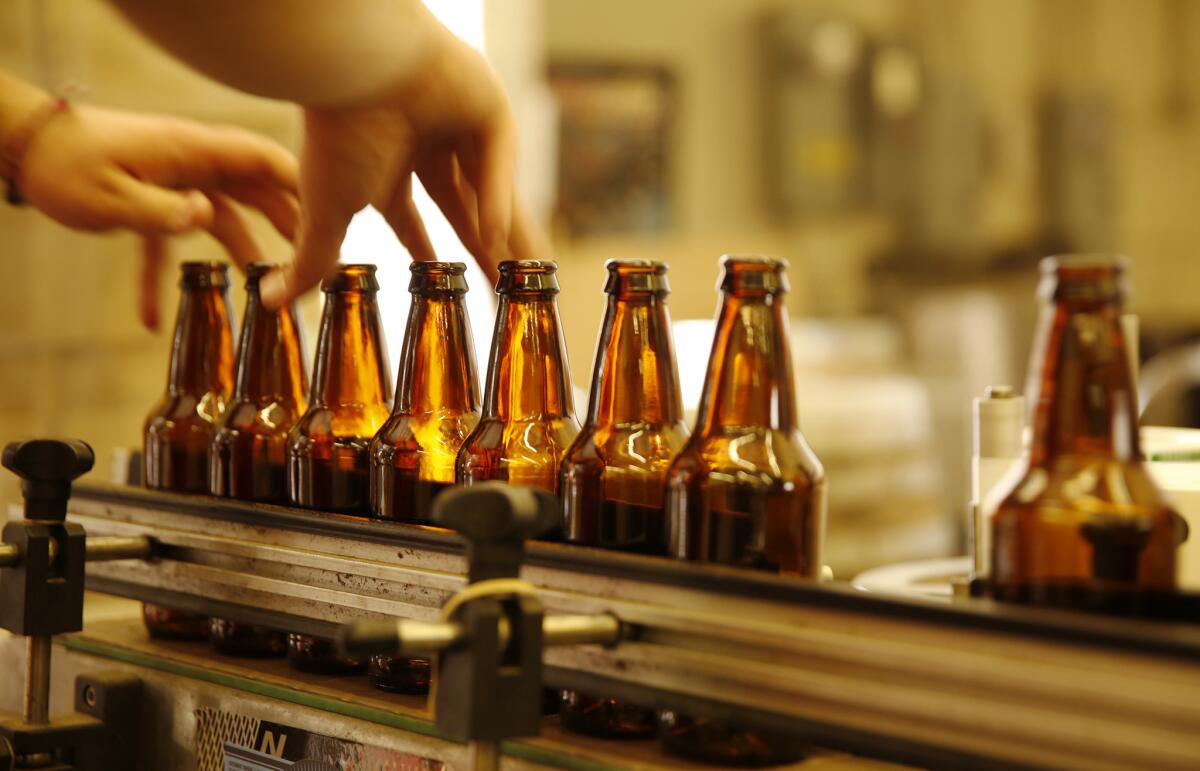
That margin of error is the acceptable amount of alcohol by which a cider or wine can surpass its labeled alcohol content, as determined by the Alcohol and Tobacco Tax and Trade Bureau. The margin exists because the percentage of alcohol can vary from bottle to bottle or batch to batch depending on a number of factors in the process..
McTavish said that as 101 Cider House grows, he hopes to open up breweries along its namesake freeway, supplying cider made from locally made ingredients to the people of the area. One such outpost already exists in Sonoma County, focusing on limited-run, barrel-aged ciders he refers to as the redwood chapter.
“Last year we did 25,000 gallons and this year we’ll do 150,000,” McTavish said. “Hopefully, one day we’ll even be able to … open up 101 chapters all along the 101, up to Oregon or Washington.”
31111 Via Colinas, No. 202, Westlake Village, (818) 851-9018, 101cider.com
More to Read
Eat your way across L.A.
Get our weekly Tasting Notes newsletter for reviews, news and more.
You may occasionally receive promotional content from the Los Angeles Times.
